Ford Focus vs VW ID.7 – Differences & prices compared
Compare performance, boot space, consumption and price in one view.
Find out now: which car is the better choice for you – Ford Focus or VW ID.7?
The Ford Focus (Hatchback) comes with a Petrol MHEV, Diesel or Petrol engine and Manuel or Automatic transmission. In comparison, the VW ID.7 (Hatchback) features a Electric engine with Automatic transmission.
When it comes to boot capacity, the Ford Focus offers 392 L, while the VW ID.7 provides 532 L – depending on how much space you need. If you’re looking for more power, decide whether the 280 HP of the Ford Focus or the 340 HP of the VW ID.7 suits your needs better.
In terms of consumption, the values are 4.90 L per 100 km for the Ford Focus, and 13.60 kWh for the VW ID.7.
Price-wise, the Ford Focus starts at 27500 £, while the VW ID.7 is available from 46300 £. Compare all the details and find out which model fits your lifestyle best!
Ford Focus
The Ford Focus is celebrated for its agile handling and stylish design, making it a popular choice among hatchback enthusiasts. Its well-crafted interior offers a comfortable driving experience with intuitive technology features. Whether navigating city streets or cruising on the motorway, the Ford Focus delivers a balanced drive with impressive efficiency.
details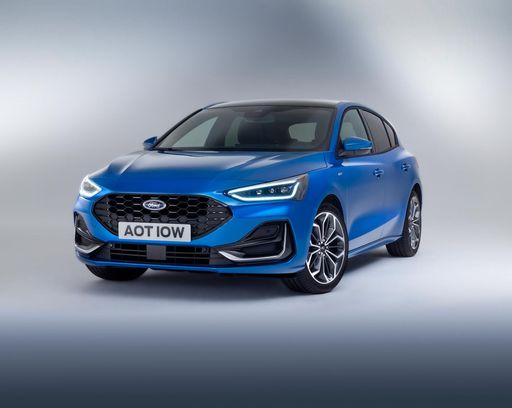 @ focus.fordpresskits.com
@ focus.fordpresskits.com
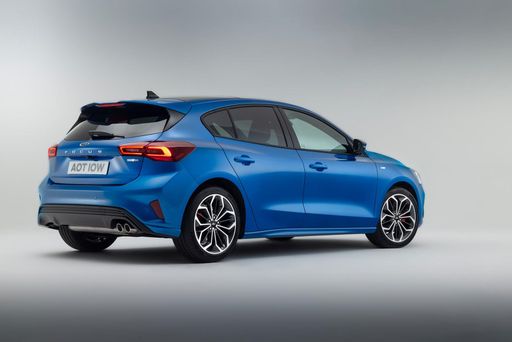 @ focus.fordpresskits.com
@ focus.fordpresskits.com
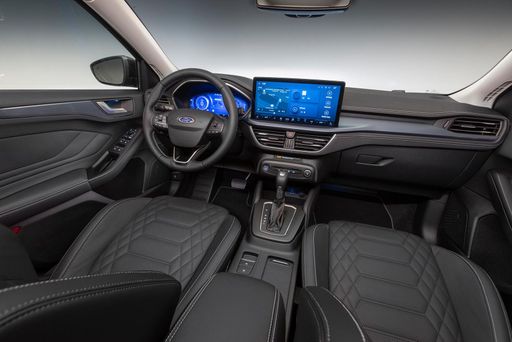 @ focus.fordpresskits.com
@ focus.fordpresskits.com
VW ID.7
The VW ID.7 represents a significant step forward in Volkswagen's electric vehicle lineup, offering an elegant design combined with advanced technology features. This electric saloon showcases a sleek aerodynamic profile, prioritising both performance and efficiency. Inside, drivers will appreciate the spacious and modern cabin, equipped with intuitive controls and connectivity features for a seamless driving experience.
details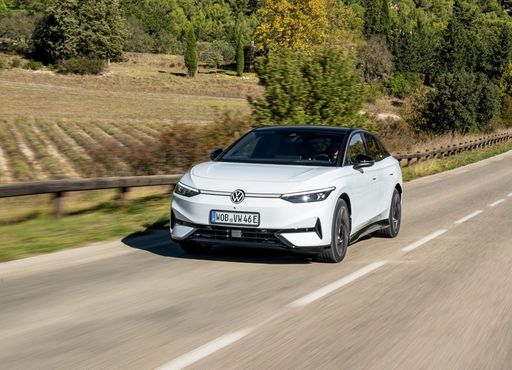 @ Volkswagen.de
@ Volkswagen.de
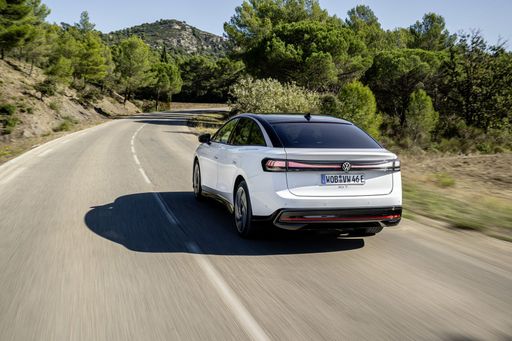 @ Volkswagen.de
@ Volkswagen.de
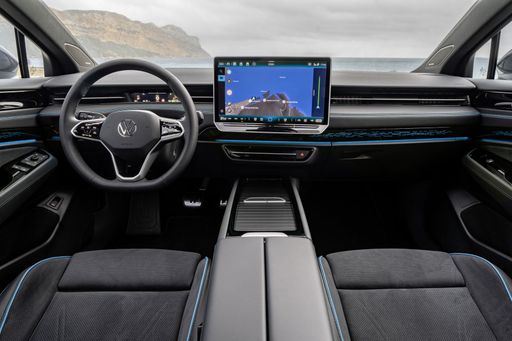 @ Volkswagen.de
@ Volkswagen.de
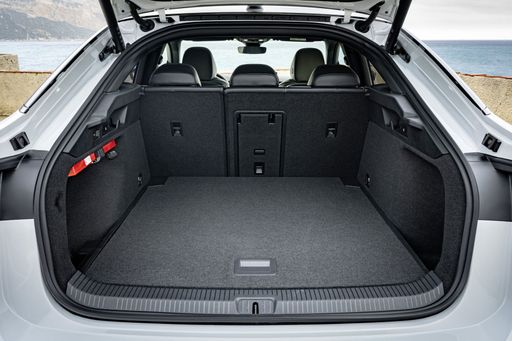 @ Volkswagen.de
@ Volkswagen.de

|

|
|
|
|
Costs and Consumption |
|
|---|---|
|
Price
27500 - 42700 £
|
Price
46300 - 54100 £
|
|
Consumption L/100km
4.9 - 8 L
|
Consumption L/100km
-
|
|
Consumption kWh/100km
-
|
Consumption kWh/100km
13.6 - 16.2 kWh
|
|
Electric Range
-
|
Electric Range
595 - 709 km
|
|
Battery Capacity
-
|
Battery Capacity
77 - 86 kWh
|
|
co2
117 - 183 g/km
|
co2
0 g/km
|
|
Fuel tank capacity
52 L
|
Fuel tank capacity
-
|
Dimensions and Body |
|
|---|---|
|
Body Type
Hatchback
|
Body Type
Hatchback
|
|
Seats
5
|
Seats
5
|
|
Doors
5
|
Doors
5
|
|
Curb weight
1330 - 1529 kg
|
Curb weight
2184 - 2328 kg
|
|
Trunk capacity
392 L
|
Trunk capacity
532 L
|
|
Length
4382 - 4397 mm
|
Length
4961 mm
|
|
Width
1825 - 1844 mm
|
Width
1862 mm
|
|
Height
1438 - 1482 mm
|
Height
1535 - 1536 mm
|
|
Payload
495 - 560 kg
|
Payload
456 - 462 kg
|
Engine and Performance |
|
|---|---|
|
Engine Type
Petrol MHEV, Diesel, Petrol
|
Engine Type
Electric
|
|
Transmission
Manuel, Automatic
|
Transmission
Automatic
|
|
Transmission Detail
Manual Gearbox, Dual-Clutch Automatic, Automatic Gearbox
|
Transmission Detail
-
|
|
Drive Type
Front-Wheel Drive
|
Drive Type
Rear-Wheel Drive, All-Wheel Drive
|
|
Power HP
115 - 280 HP
|
Power HP
286 - 340 HP
|
|
Acceleration 0-100km/h
5.7 - 11.8 s
|
Acceleration 0-100km/h
5.4 - 6.6 s
|
|
Max Speed
186 - 250 km/h
|
Max Speed
180 km/h
|
|
Torque
170 - 420 Nm
|
Torque
545 - 679 Nm
|
|
Number of Cylinders
3 - 4
|
Number of Cylinders
-
|
|
Power kW
85 - 206 kW
|
Power kW
210 - 250 kW
|
|
Engine capacity
999 - 2261 cm3
|
Engine capacity
-
|
General |
|
|---|---|
|
Model Year
2022 - 2024
|
Model Year
2023 - 2024
|
|
CO2 Efficiency Class
D, G
|
CO2 Efficiency Class
A
|
|
Brand
Ford
|
Brand
VW
|
Ford Focus
A Revamped Classic: The Ford Focus
The Ford Focus has long been a staple in the compact car market, offering a blend of practicality, performance, and affordability. With the latest iterations, Ford continues to build on this reputation, introducing a series of technical enhancements and innovative features aimed at both seasoned car enthusiasts and daily commuters alike.
Innovative Powertrains and Engine Performance
The latest Ford Focus models are equipped with a variety of engine options tailored to diverse driving preferences. At the heart of the lineup are the EcoBoost Hybrid engines, which combine efficiency with performance. These mild-hybrid petrol engines are designed to deliver responsive power with a promise of reduced emissions and fuel consumption.
For those who prefer diesel, the EcoBlue engine offers a smooth and quiet ride with impressive torque and fuel economy. Meanwhile, the high-performance ST variant, powered by a robust 280 PS petrol engine, caters to drivers seeking a sporty experience.
Driving Dynamics and Comfort
One of the Ford Focus's standout features is its superior driving dynamics, balanced perfectly between comfort and agility. Whether equipped with a manual, automatic, or dual-clutch PowerShift transmission, the Focus ensures a responsive drive that adapts to both urban and highway conditions.
The vehicle's suspension system has been finely tuned to absorb road imperfections, offering a composed ride that neither sacrifices comfort nor handling precision. With front-wheel drive across the range, the Focus provides a stable and reassuring road presence.
Efficiency and Sustainability
The Ford Focus impresses with its commitment to fuel efficiency. The EcoBoost Hybrid engines deliver consumption as low as 5.2 L/100km, while the diesel variant offers an even more frugal 4.9 L/100km. These figures not only promise reduced running costs but also lower CO2 emissions, aligning with current sustainability trends.
With CO2 efficiency classes ranging from D to G, the Focus demonstrates a strategic blend of performance and environmental consideration, an important factor for environmentally conscious drivers.
Modern Design and Versatility
In terms of aesthetics, the latest Ford Focus models feature a sleek, aerodynamic silhouette complemented by modern design cues. Ranging from the sporty ST-Line to the sophisticated Titanium editions, each trim offers a distinct personality while maintaining the Focus's core design philosophy.
The Focus continues to offer practical versatility with features like a spacious 392-litre boot, making it suitable for family trips and everyday errands. The interior is smartly designed, providing ample space for five passengers and affording a comfortable, ergonomic driving position.
Technological Enhancements
Technology in the Ford Focus reflects the needs of today's connected driver. The vehicle is equipped with the latest Ford SYNC infotainment system, featuring a user-friendly interface and seamless smartphone connectivity. Driver-assist features such as adaptive cruise control, lane-keeping aid, and traffic sign recognition enhance safety and convenience.
Moreover, the Focus offers various driving modes to tailor the driving experience to different conditions, thus ensuring that drivers have both flexibility and control at their fingertips.
Conclusion: An Evolved Icon
The Ford Focus remains a dominant player in its segment, thanks to its comprehensive suite of innovative features, efficient powertrains, and dynamic styling. This model continues to evolve, providing a balanced blend of performance, economy, and technology, making it a worthy choice for those seeking a reliable yet exciting compact car.
VW ID.7
Introducing the VW ID.7: A Game-Changer in the Electric Car Market
The VW ID.7 represents Volkswagen's commitment to innovation and sustainability in the automotive market. This all-electric vehicle stands out not only for its sleek design but also for its impressive array of technological advancements. In this article, we delve into the technical specifications and innovations that make the ID.7 a remarkable addition to Volkswagen's electric vehicle lineup.
Power and Performance
Under the bonnet, the VW ID.7 is powered by a range of electric motors, offering horsepower between 286 and 340 PS. This provides the perfect blend of power and efficiency, making it an ideal choice for both city driving and long-distance journeys. With a top speed of 180 km/h and a lightning-fast acceleration from 0 to 100 km/h in just 5.4 seconds, the ID.7 doesn’t compromise on performance.
Impressive Range and Efficiency
The VW ID.7 redefines what it means to travel efficiently. Depending on the model, the ID.7 offers an electric range between 595 and 709 km on a single charge, setting new benchmarks for the industry. With energy consumption as low as 13.6 kWh per 100 km, it is one of the most energy-efficient vehicles in its class, making it both environmentally friendly and cost-effective for everyday use. The ID.7 boasts a CO2 efficiency class of A, reflecting its zero-emission status.
Advanced Technology and Safety Features
Volkswagen has equipped the ID.7 with cutting-edge technology designed to enhance the driving experience. The car features advanced driver assistance systems, including adaptive cruise control and lane-keeping assistance. Moreover, its infotainment system is state-of-the-art, offering seamless connectivity and a user-friendly interface. Safety features are also top-notch, ensuring peace of mind for drivers and passengers alike.
Design and Comfort
The ID.7's design is both futuristic and practical. Its streamlined body provides a stylish exterior, while the interior is spacious and comfortable, accommodating up to five passengers effortlessly. With a generous boot capacity of 532 litres, there is plenty of storage for all your needs. The ID.7’s dimensions, measuring 4961 mm in length and 1862 mm in width, make it a substantial vehicle that commands attention on the road.
Efficient Price Point
Despite its high-tech features and impressive performance, the VW ID.7 maintains a competitive price range, starting from €53,995. This makes it accessible to a wide range of customers seeking an eco-friendly vehicle without breaking the bank. Additionally, with monthly costs ranging between €1,197 and €1,372, it's a practical choice for those considering long-term electric vehicle ownership.
Conclusion
In conclusion, the VW ID.7 is a testament to innovation in the electric vehicle sector. Its combination of power, range, and technology sets a new standard for what drivers can expect from an electric car. As Volkswagen continues to pave the way for electric mobility, the ID.7 stands as a beacon of what's possible when cutting-edge technology meets sustainable driving practices.
Which drive types are available for the Ford Focus?
Available as Front-Wheel Drive.
The prices and data displayed are estimates based on German list prices and may vary by country. This information is not legally binding.
